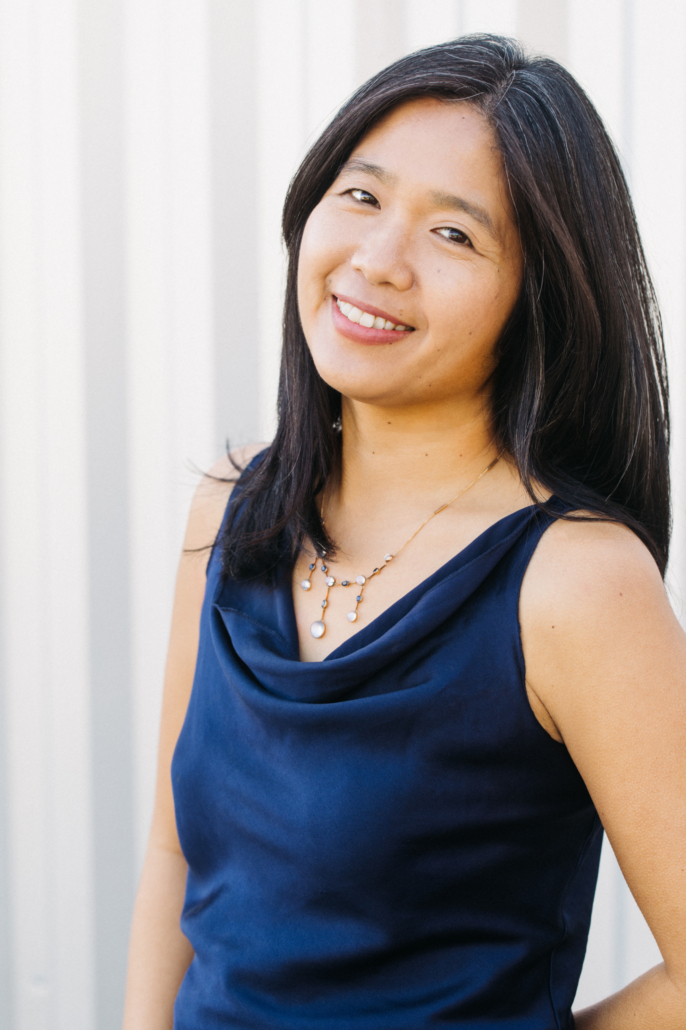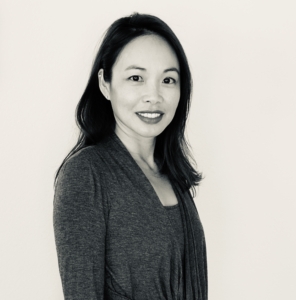Modern Issues in Historical Fiction: An Interview with Vanessa Hua
 Vanessa Hua is an acclaimed writer based in San Francisco. Her fiction has generally encompassed the journeys of strong protagonists contending with big changes in their lives, often involving immigration and power. Her short story collection, Deceit and Other Possibilities, renders stories of immigrant families who struggle to navigate their lives in America. Her debut novel, A River of Stars, raises issues of identity, immigration, and motherhood. Her latest novel, Forbidden City, portrays a young Chinese woman’s ambitions and hopes for her family and country during a revolutionary historical period.
Vanessa Hua is an acclaimed writer based in San Francisco. Her fiction has generally encompassed the journeys of strong protagonists contending with big changes in their lives, often involving immigration and power. Her short story collection, Deceit and Other Possibilities, renders stories of immigrant families who struggle to navigate their lives in America. Her debut novel, A River of Stars, raises issues of identity, immigration, and motherhood. Her latest novel, Forbidden City, portrays a young Chinese woman’s ambitions and hopes for her family and country during a revolutionary historical period.
Vanessa was a columnist for The San Francisco Chronicle. Her work has appeared in The New York Times, Washington Post, and elsewhere. Her fiction has appeared in The Atlantic, Guernica, and elsewhere. She is a graduate of Stanford University and UC Riverside’s MFA program.
A National Endowment for the Arts Literature Fellow and the recipient of numerous awards and fellowships, Vanessa has taught at various workshops and MFA programs, including Antioch University’s MFA program. Her long list of achievements and honors can be found on her website at https://www.vanessahua.com/.
In March, I interviewed Vanessa about her favorite genre to write, future projects, and thoughts on cultural appropriation.
EJ Saunders: You write for the San Francisco Chronicle and have a background in journalism. From a craft perspective, between non-fiction, short stories, and novels, which do you most enjoy writing, and why?
Vanessa Hua: In January, I wrapped up my column for the Chronicle, after almost seven years. When I’m asked this question, what’s my favorite genre, I have to respond “They’re all my favorites!” It’s akin to being asked which child is my favorite (Answer: they both are.) It’s not a cop out; working in all these genres strengthens my craft in each. Writing nonfiction has taught me how to write daily and on deadline, to collaborate with editors, how to research and interview, and how to draft and revise regularly. Writing fiction has also benefited my nonfiction; I’ve learned how to consider setting sensibility, story shape, figurative language, dialogue, and more, striving for a distinct voice and vision.
That said, what I value about fiction—whether a short story or novel—is that ability to go beyond where the official record ends.
ES: How much do you think about structure and form before you write?
VH: I start with a premise, circumstance: what kind of character would end up in a certain situation, and how would they find a way through? In revision, I’ll reverse-outline, figuring out what I’ve drafted scene by scene. This overhead view of stakes and structure provides a map for what to do next.
ES: Mathew Salesses asks, “What rules and archetypes standardize are models that are easily generalizable to accepted cultural preferences. What doesn’t fit the model is othered. What is our responsibility to the other?” Do you consider archetypes in writing your characters?
VH: Archetypes have a powerful hold on our imagination; they represent characters, patterns that we hear over and over again, that we absorb on the page and on the silver screen. More than that, they’re social scripts we find ourselves unconsciously following. I’m paraphrasing Charles Baxter, but be on guard against what’s too familiar, of what emerges too easily from our imaginations. As writers, we can resist, subvert, play around with the archetypes so that our characters better reflect the world we live in. For me, the joy—and struggle—of fiction is figuring out my characters. Knowing everything from the outset would deny me that satisfaction.
ES: I read that you speak “a little” Mandarin. How did you interview people in China for your novels when you speak elementary Mandarin?
VH: I’m speaking from the perspective of an American-born Chinese (ABC), who never feels fluent enough! In China, I could carry on small talk. But I hired an interpreter while conducting interviews. I can understand more than I can speak the ancestral tongue of my parents, which is often the case with ABC (and other children of diasporas.)
ES: In an interview in Catapult, you said that Forbidden City “provides a lens onto the present,” and that movements like “Me Too” also shaped your project. Could you describe how recent cases affected your project, and perhaps how they affected the way you wrote the relationship between Mei, a 16 year old, and the Chairman who was in his 60s?
While the language around consent is anachronistic to the setting of my novel, the conversations shaped how I conceived of their dynamic. That’s a particular delight of historical fiction: not only do we learn about a specific era, it also gives us cause to consider the moment we live in. The past is never as distant as it seems.
VH: I began writing this novel in grad school, in 2007, and finished the final revisions in 2021. As I researched, I’d already been reading memoirs by people who survived cults and younger women with older men. Then I witnessed the rise of the “Me Too” Movement and its subsequent backlash. While the language around consent is anachronistic to the setting of my novel, the conversations shaped how I conceived of their dynamic. That’s a particular delight of historical fiction: not only do we learn about a specific era, it also gives us cause to consider the moment we live in. The past is never as distant as it seems.
ES: In that Catapult interview you also mentioned how you and the world change in the time it takes to write a novel. It took you fourteen years to write Forbidden City. For those who write historical fiction, do you recommend writers reconcile their story to the present mood and culture?
VH: The present mood and culture invariably seeps into your thinking; I don’t know if you can deliberately reconcile it to your story. From the time that you finish major edits until publication date, almost a year—or more!—may pass and who knows what news will have transpired. I’m always fascinated by the conversations after the book makes its way into the world, and the different ways a book may resonate with a reader.
ES: In the seminar you taught at Antioch University: Writing Across Cultures: Taking an Imaginative Leap of Empathy, I appreciated your advice on how we can write about people not like ourselves. You mentioned being empathetic, while also being cognizant of the power dynamics of different groups of people. Do you have any additional comments on cultural appropriation in writing?
The present mood and culture invariably seeps into your thinking; I don’t know if you can deliberately reconcile it to your story.
VH: Authors are free to write whatever they choose, but they can’t dictate how people will react to that work. What I advise is how can you and your work be in conversation in what has preceded you and what will continue after. We’re not in a vacuum.
ES: In the seminar you taught at Antioch, you discussed the delicate balance a writer must have between over-explaining the distinctions of a culture and having the reader do their own research. How do you ensure your readers will understand important cultural points without over-explaining?
VH: I consider what’s salient to the characters in a scene and what they would know of the culture and of each other without explaining to themselves or to each other; it shouldn’t feel like they’re reciting a Wikipedia entry. After all, if readers are curious, they can always google to find out more. That’s what I do as a reader, and I’m always excited to hear when my work inspires readers to seek out more information.
ES: You’ve stated that you often ask your students who their imagined audience is. Did you write Forbidden City with the modern reader in mind?
VH: In regards to Forbidden City, I was referring to the imagined audience of the protagonist: who is she addressing and why, to add to the urgency and poignance. As to whom I write for, a teacher once said you should write for your six closest friends—the ones who understand every nuance, every joke. Your work can’t be all things to all people. And yet, in that specificity, you may reach many more readers.
ES: What question do you wish an interviewer would ask, and how would you answer it?
VH: I’ve been asking writer friends if they have a hobby that they aren’t good at and will never be but nonetheless helps them reach a flow state. For me, during the first year of the pandemic, it was relearning how to play my sons’ recorder. I taught myself how to play “The Inner Light,” “My Heart Will Go On,” and “Chariots of Fire.” It’s silly, since I know how to play the flute, but the challenge fully preoccupied me and left me refreshed afterwards.
ES: How does your interest in social justice manifest in your work?
VH: In my journalism and in my fiction, I’ve always tried to shine a light onto untold stories that might inspire a change in thinking or a change in action. I’m deeply moved when readers tell me my book reached them at the moment they needed it most in their life, that it helped them feel visible and that it helped pave the way for them to share their stories, too.
ES: What is your next professional challenge?
VH: I am deep into the first draft of my next novel, which is about surveillance and suburbia, and the collision of four families. I’m also working on a nonfiction proposal, about how foraging taught me how to see.
EJ Saunders is studying for her MFA in fiction at Antioch University. She graduated with her Bachelors in Political Science and has a Juris Doctor degree. Influenced by her previous work experience at a startup renewable energy company, she’s currently writing projects covering the topics of climate and renewable energy. She’s written for tech, energy, health, and travel publications. You can connect with her on Twitter @ejsdays.





